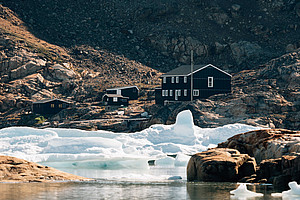It is well known that heatwaves intensify more than mean temperatures increase. "For example, if the global climate warms by two degrees, a typical heatwave will be about 2.6 degrees hotter," explains Douglas Maraun, research group leader at the Wegener Center at the University of Graz. But the most extreme and catastrophic, often record breaking heatwaves, such as those in Canada in 2021, in India in 2022 and in the Mediterranean in 2023, are very rare events. Until now, the tacit assumption was that such very extreme heat events respond in a similar way to climate change than more moderate events.
A new study led by the Wegener Center for Climate and Global Change at the University of Graz showed that this assumption is wrong for large areas of the planet. “Across many regions, the most extreme heat events could even warm twice as strong as mean warming,” says Maraun. This means that for these regions, climate risk assessments may have substantially underestimated the highest risks and in turn proposed insufficient adaptation measures. In other regions, the opposite applies.
The research team has discovered a mechanism that explains the specific behaviour of very extreme heat events. By analysing various climate models, the scientists found that soil moisture on the hottest days of the year plays a key role and how this changes with global warming. This mechanism is robustly simulated by different climate models, but the models do not agree on which regions are affected.
"These differences demonstrate the uncertainties we still have about regional changes in very extreme events,” says Maraun. Further research is therefore needed to investigate the underlying processes and compare the model results with observations. "However, our findings already provide an initial assessment of which regions should prepare as potential future hotspots of very extreme heat events."
Publication
Maraun, D., Schiemann, R., Ossó, A. & Jury, M. Changes in event soil moisture-temperature coupling can intensify very extreme heat beyond expectations. Nat Commun 16, 734 (2025).
https://doi.org/10.1038/s41467-025-56109-0




